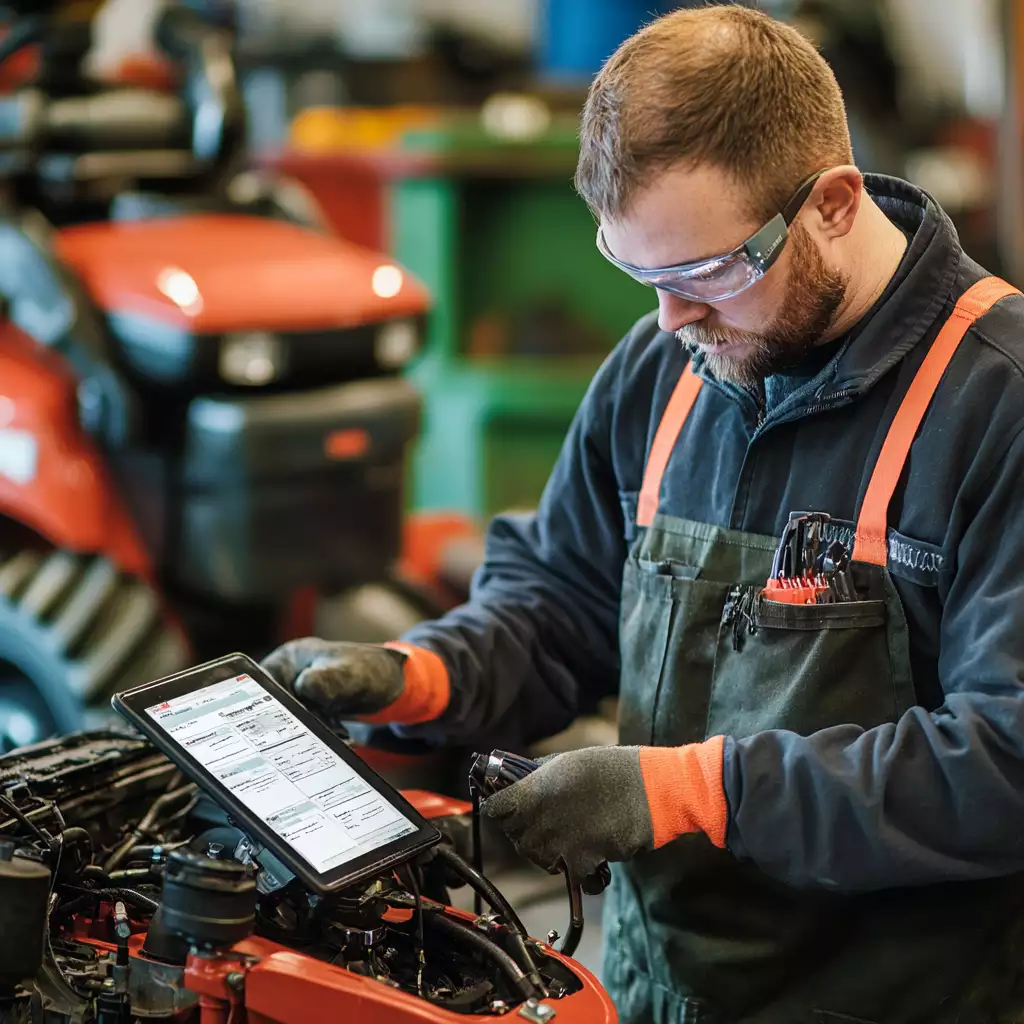Why Commercial Equipment Maintenance Matters
In the fast-paced business world, the reliability of commercial equipment is crucial to operational success. Regular maintenance isn’t just a recommendation—it’s a necessity. Whether you’re running a landscape business in New Hampshire or managing commercial HVAC systems, proper upkeep is essential for:
- Maximizing efficiency
- Extending equipment lifespan
- Avoiding costly downtime
- Ensuring regulatory compliance
- Enhancing safety in the workplace
By implementing a proactive maintenance strategy, businesses can protect their investments, maintain productivity, and optimize energy consumption.
Overview of Commercial Equipment Maintenance
The Role of Maintenance in Business Operations
Scheduled maintenance plays a vital role in keeping commercial equipment functioning efficiently. From HVAC systems and manufacturing machinery to landscaping tools and kitchen appliances, regular upkeep prevents breakdowns and ensures smooth business operations.
Key aspects of maintenance include:
- Routine Inspections: Identifying minor issues before they escalate
- Cleaning Protocols: Keeping equipment free from dust and debris
- Parts Replacement: Preventing unexpected failures by adhering to manufacturer guidelines
- Record Keeping: Tracking maintenance history for better planning
- Staff Training: Educating employees on proper equipment usage
Spring Equipment Preparation & Seasonal Maintenance
For businesses that rely on seasonal equipment, like landscaping companies, spring preparation is essential. Ensuring mowers, trimmers, and other landscaping tools are in peak condition before the busy season helps avoid disruptions and maintains service efficiency.
Key Benefits of Regular Commercial Equipment Maintenance
1. Extended Equipment Lifespan
By routinely maintaining equipment, businesses can maximize their investment. Replacing worn-out parts and conducting preventive servicing ensures machinery remains operational for years.
2. Cost Savings
Unexpected repairs and emergency services are expensive. Scheduled maintenance minimizes the likelihood of sudden breakdowns, reducing long-term operational costs.
3. Enhanced Efficiency & Performance
Well-maintained equipment operates smoothly, consumes less energy, and requires fewer repairs. This optimization translates to lower utility costs and improved workflow.
4. Improved Safety & Compliance
Faulty equipment poses safety hazards to employees and customers. Regular inspections help detect risks, ensuring compliance with OSHA and other industry regulations.
5. Minimized Downtime
Unscheduled equipment failures lead to production halts and lost revenue. A structured maintenance plan reduces the risk of operational disruptions.
Types of Commercial Equipment Requiring Regular Maintenance
Common Equipment
- Manufacturing Machinery: Conveyor belts, CNC machines, and production lines
- HVAC Systems: Heating, ventilation, and air conditioning units
- Kitchen Appliances: Ovens, fryers, refrigeration units
- Landscaping Equipment: Mowers, trimmers, aerators, and rototillers
- Forklifts & Material Handling Equipment: Essential for warehouse and logistics operations
- Office Equipment: Printers, copiers, networking infrastructure
Specialized Equipment
- Medical Devices: MRI machines, sterilizers, and diagnostic tools
- Construction Machinery: Excavators, bulldozers, and loaders
- Agricultural Equipment: Tractors, harvesters, and irrigation systems
- IT Infrastructure: Servers, data centers, and networking equipment
Each category of commercial equipment demands a tailored maintenance strategy to ensure optimal performance.
Maintenance Best Practices
1. Preventive Maintenance Strategies
Preventive maintenance involves scheduled checkups, cleaning, lubrication, and part replacements before issues arise. This proactive approach reduces the risk of major malfunctions.
2. Implementing Scheduled Inspections
Routine inspections should be part of every business’s operational plan. Scheduling maintenance during off-peak hours minimizes disruptions.
3. Record Keeping for Maintenance Management
Tracking service records allows businesses to identify patterns, plan future investments, and comply with industry regulations.
4. Employee Training
Training staff on proper equipment handling and recognizing warning signs of malfunction can prevent small issues from escalating into costly repairs.
Choosing the Right Maintenance Provider
Selecting a professional maintenance provider ensures expert care for commercial equipment. Businesses should consider the following:
- Experience: Look for providers with expertise in maintaining specific types of equipment.
- Certifications: Verify that technicians hold relevant industry certifications.
- Customer Reviews: Read testimonials and case studies to gauge reliability.
- Service Options: Choose providers offering flexible maintenance plans, emergency services, and seasonal tune-ups.
For landscape businesses in New Hampshire, a maintenance provider familiar with seasonal adjustments and spring equipment preparation is crucial.
Frequently Asked Questions (FAQs)
Why is regular maintenance important for commercial equipment?
Regular maintenance ensures efficiency, prevents unexpected downtime, extends equipment lifespan, and maintains compliance with safety regulations.
What are the benefits of maintaining commercial equipment?
Key benefits include cost savings, improved performance, increased safety, reduced downtime, and enhanced energy efficiency.
How can businesses develop an effective maintenance plan?
A solid maintenance plan includes scheduled inspections, cleaning routines, staff training, and detailed record-keeping.
What should I consider when selecting a maintenance provider?
Evaluate experience, certifications, customer reviews, and service options to find the right provider for your business needs.
How does seasonal demand affect equipment maintenance?
Seasonal shifts impact how equipment is used. Preparing for peak seasons, such as spring landscaping, ensures optimal performance and service continuity.
What are key preventive maintenance practices?
Regular inspections, cleaning schedules, timely parts replacement, and employee training form the backbone of preventive maintenance.
How does record-keeping improve maintenance efforts?
Documenting maintenance history helps track performance trends, plan investments, and maintain regulatory compliance.
What commercial equipment requires specialized maintenance?
Manufacturing, HVAC, landscaping, medical, construction, and IT equipment each require tailored maintenance strategies.
Contact Seacoast Power for Expert Equipment Maintenance
For businesses in New Hampshire, Seacoast Power is your trusted partner in commercial equipment maintenance. Whether you need seasonal landscaping tool preparation, HVAC servicing, or industrial machinery maintenance, our team of experienced professionals ensures your equipment operates at peak efficiency.
Schedule Your Maintenance Service Today!
Don’t wait for breakdowns to disrupt your operations. Contact Seacoast Power for proactive maintenance solutions tailored to your business needs.
📞 Call us today at (603) 964-8384
🌐 Visit us at www.seacoastpower.com.

